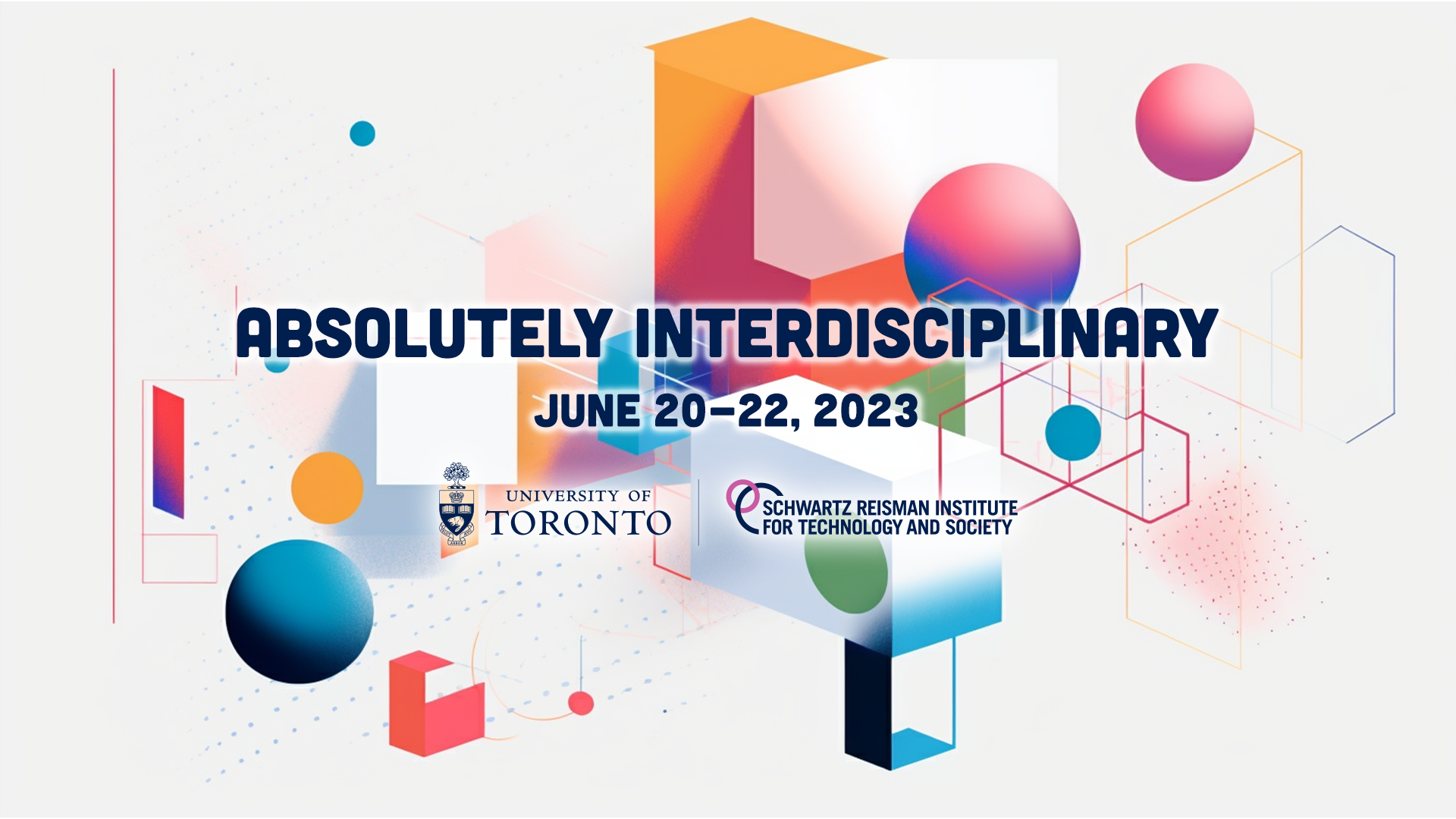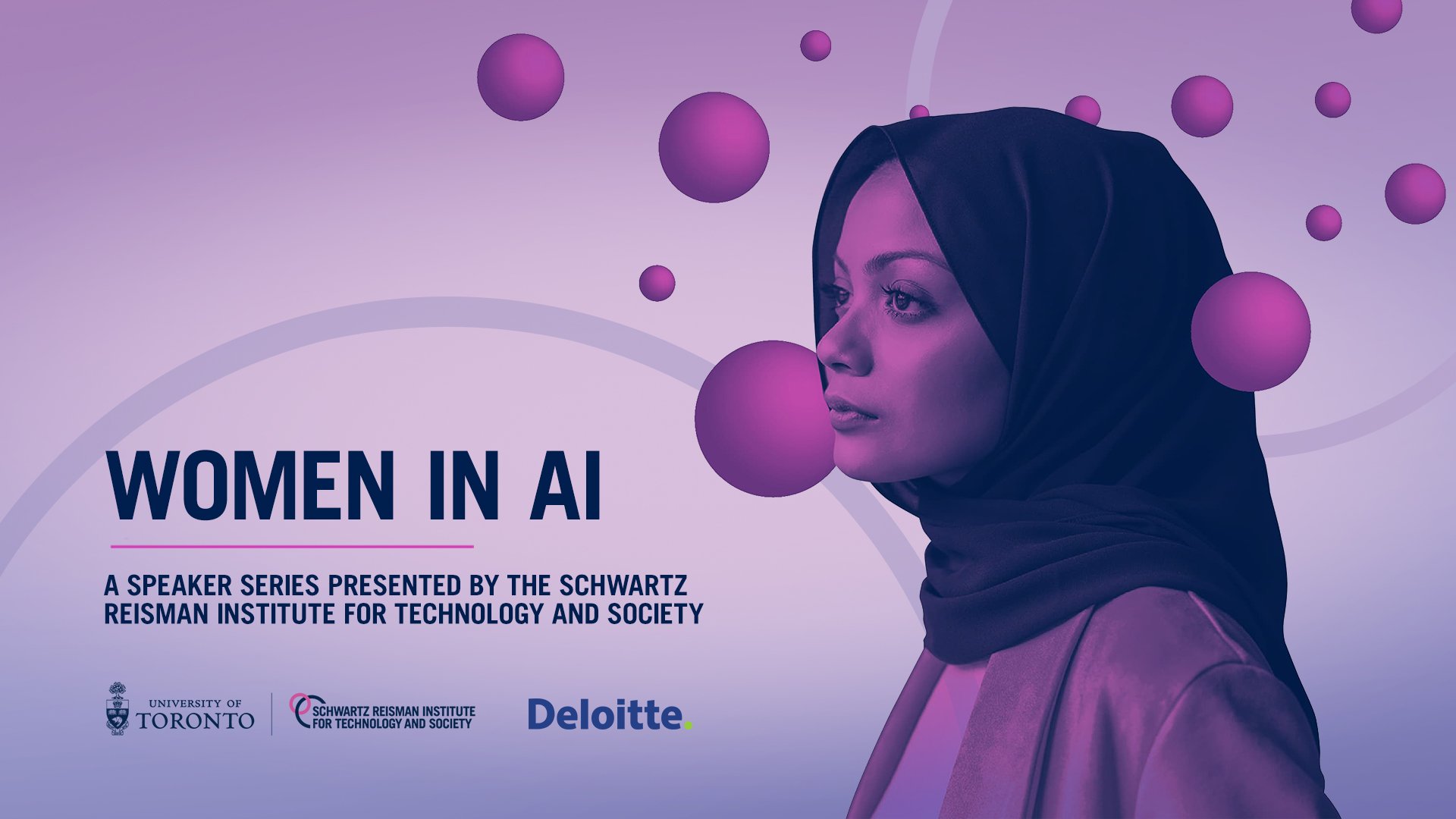WHAT’S HAPPENING
Here’s what we’re thinking about, talking about, and working on at the Schwartz Reisman Institute.
David Duvenaud reflects on post-AGI workshop
SRI Chair David Duvenaud shares reflections from the Post-AGI workshop, highlighting the value of diverse perspectives and the challenges of envisioning post-AGI trajectories.
Social agentics: Rethinking AI’s role in human worlds
Researchers and scholars spent the day at the Schwartz Reisman Innovation Campus tackling some big-picture questions about the future of AI and society.
Harming virtuously? Value alignment for harmful AI
The field of AI safety emphasizes that systems be aligned with human values, often stating AI should “do no harm.” But lethal autonomous systems used for firearms and drones are already harming people. How can we address the reality of purposely harmful AI systems? SRI Graduate Fellow Michael Zhang writes about a panel of experts exploring this topic.
Women in AI speaker series offers insights into the importance of diversity in tech
In collaboration with Deloitte, the Schwartz Reisman Institute for Technology and Society presented a distinguished speaker series highlighting contributions from six innovative female researchers working at the forefront of artificial intelligence across a wide range of specializations.
Absolutely Interdisciplinary returns to spark new insights into the future of AI
The Schwartz Reisman Institute’s annual academic conference returns for a wide range of stimulating discussions on how the next phase of AI development will transform our world. Join keynote speaker Blaise Agüera y Arcas, panelists Richard Sutton, N. Katherine Hayles, and William Cunningham, and more. Registration is now open.
Entering the uncanny valley: Technophilosophy September Soirée explores the impacts of VR
How is virtual reality changing the way we live? Does living in a virtual landscape create new ethical and moral problems? At the first annual Technophilosophy September Soirée, SRI Research Lead Karina Vold convened an interdisciplinary panel of University of Toronto scholars to discuss the impacts of new technologies on the way we understand our world.
Schwartz Reisman Institute for Technology and Society announces Women in AI series
The Schwartz Reisman Institute is launching a new speaker and mentorship series to promote gender equity in artificial intelligence research, in collaboration with Deloitte. The Women in AI series will convene leading female AI researchers to share knowledge through seminar events that promote opportunities for women across the technology sector.
SRI Seminar Series returns for fall 2022 featuring talks on the ethics of technology
The SRI Seminar Series convenes the Schwartz Reisman Institute’s community to discuss cutting-edge ideas and scholarship at the intersection of technology and society. The 2022 Fall Seminar Series begins on September 14, 2022 with a presentation by Julie Shah, director of the Interactive Robotics Group at MIT’s Computer Science and Artificial Intelligence Laboratory.
Building democracy into recommender systems will require new tools and frameworks
In a session at Absolutely Interdisciplinary 2022, SRI Associate Director Peter Loewen, Jonathan Stray of the Berkeley Center for Human-Compatible AI, and Taylor Owen of McGill University discussed what methods and principles might be used to redesign the algorithms that decide what billions of people see in accordance with democratic values.
Anna Su explores digital constitutionalism and the futures of digital governance
The rise of the information society and the ubiquity of digital technologies brings new challenges for governance, as traditional institutions might not be sufficient to address the complex issues emerging from these new tools. In a talk at Absolutely Interdisciplinary 2022, SRI Faculty Fellow Anna Su explored the phenomenon of digital constitutionalism and the importance of human rights to balance powers in the digital realm.
Redrawing data boundaries: From private collection to public good
Can the data collected by private companies be recognized as a public resource to be leveraged for social good? What obstacles stand in the way? In a panel discussion at Absolutely Interdisciplinary 2022, SRI Associate Director Lisa Austin discussed the shape of data today with Eric Horvitz (Microsoft), Aziz Z. Huq (University of Chicago), Robert Seamans (Stern School of Business, NYU), and Pamela Snively (TELUS).
Explanation and justification in partial view AI models
Calls for AI to be “explainable” have been mounting for several years, leading computer scientists to provide accounts of the decisions of complex ML systems. But are such accounts the only kinds of explanations we need? At Absolutely Interdisciplinary 2022, Finale Doshi-Velez and Boris Babic explored the differences between explanation and justification, and how insights from other regulatory domains can help us build trustworthy systems.












